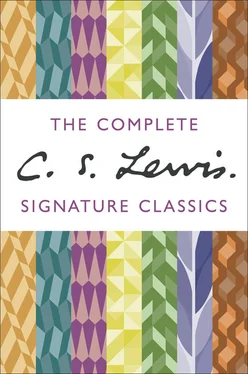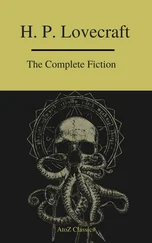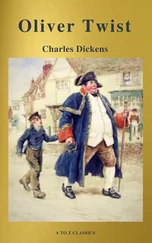The idea that ‘being in love’ is the only reason for remaining married really leaves no room for marriage as a contract or promise at all. If love is the whole thing, then the promise can add nothing; and if it adds nothing, then it should not be made. The curious thing is that lovers themselves, while they remain really in love, know this better than those who talk about love. As Chesterton pointed out, those who are in love have a natural inclination to bind themselves by promises. Love songs all over the world are full of vows of eternal constancy. The Christian law is not forcing upon the passion of love something which is foreign to that passion’s own nature: it is demanding that lovers should take seriously something which their passion of itself impels them to do.
And, of course, the promise, made when I am in love and because I am in love, to be true to the beloved as long as I live, commits me to being true even if I cease to be in love. A promise must be about things that I can do, about actions: no one can promise to go on feeling in a certain way. He might as well promise never to have a headache or always to feel hungry. But what, it may be asked, is the use of keeping two people together if they are no longer in love? There are several sound, social reasons; to provide a home for their children, to protect the woman (who has probably sacrificed or damaged her own career by getting married) from being dropped whenever the man is tired of her. But there is also another reason of which I am very sure, though I find it a little hard to explain.
It is hard because so many people cannot be brought to realise that when B is better than C, A may be even better than B. They like thinking in terms of good and bad, not of good, better, and best, or bad, worse and worst. They want to know whether you think patriotism a good thing: if you reply that it is, of course, far better than individual selfishness, but that it is inferior to universal charity and should always give way to universal charity when the two conflict, they think you are being evasive. They ask what you think of duelling. If you reply that it is far better to forgive a man than to fight a duel with him, but that even a duel might be better than a lifelong enmity which expresses itself in secret efforts to ‘do the man down’, they go away complaining that you would not give them a straight answer. I hope no one will make this mistake about what I am now going to say.
What we call ‘being in love’ is a glorious state, and, in several ways, good for us. It helps to make us generous and courageous, it opens our eyes not only to the beauty of the beloved but to all beauty, and it subordinates (especially at first) our merely animal sexuality; in that sense, love is the great conqueror of lust. No one in his senses would deny that being in love is far better than either common sensuality or cold self-centredness. But, as I said before, ‘the most dangerous thing you can do is to take any one impulse of our own nature and set it up as the thing you ought to follow at all costs’. Being in love is a good thing, but it is not the best thing. There are many things below it, but there are also things above it. You cannot make it the basis of a whole life. It is a noble feeling, but it is still a feeling. Now no feeling can be relied on to last in its full intensity, or even to last at all. Knowledge can last, principles can last, habits can last; but feelings come and go. And in fact, whatever people say, the state called ‘being in love’ usually does not last. If the old fairy-tale ending ‘They lived happily ever after’ is taken to mean ‘They felt for the next fifty years exactly as they felt the day before they were married’, then it says what probably never was nor ever would be true, and would be highly undesirable if it were. Who could bear to live in that excitement for even five years? What would become of your work, your appetite, your sleep, your friendships? But, of course, ceasing to be ‘in love’ need not mean ceasing to love. Love in this second sense—love as distinct from ‘being in love’—is not merely a feeling. It is a deep unity, maintained by the will and deliberately strengthened by habit; reinforced by (in Christian marriages) the grace which both partners ask, and receive, from God. They can have this love for each other even at those moments when they do not like each other; as you love yourself even when you do not like yourself. They can retain this love even when each would easily, if they allowed themselves, be ‘in love’ with someone else. ‘Being in love’ first moved them to promise fidelity: this quieter love enables them to keep the promise. It is on this love that the engine of marriage is run: being in love was the explosion that started it.
If you disagree with me, of course, you will say, ‘He knows nothing about it, he is not married.’ You may quite possibly be right. But before you say that, make quite sure that you are judging me by what you really know from your own experience and from watching the lives of your friends, and not by ideas you have derived from novels and films. This is not so easy to do as people think. Our experience is coloured through and through by books and plays and the cinema, and it takes patience and skill to disentangle the things we have really learned from life for ourselves.
People get from books the idea that if you have married the right person you may expect to go on ‘being in love’ for ever. As a result, when they find they are not, they think this proves they have made a mistake and are entitled to a change—not realising that, when they have changed, the glamour will presently go out of the new love just as it went out of the old one. In this department of life, as in every other, thrills come at the beginning and do not last. The sort of thrill a boy has at the first idea of flying will not go on when he has joined the R.A.F. and is really learning to fly. The thrill you feel on first seeing some delightful place dies away when you really go to live there. Does this mean it would be better not to learn to fly and not to live in the beautiful place? By no means. In both cases, if you go through with it, the dying away of the first thrill will be compensated for by a quieter and more lasting kind of interest. What is more (and I can hardly find words to tell you how important I think this), it is just the people who are ready to submit to the loss of the thrill and settle down to the sober interest, who are then most likely to meet new thrills in some quite different direction. The man who has learned to fly and become a good pilot will suddenly discover music; the man who has settled down to live in the beauty spot will discover gardening.
This is, I think, one little part of what Christ meant by saying that a thing will not really live unless it first dies. It is simply no good trying to keep any thrill: that is the very worst thing you can do. Let the thrill go—let it die away—go on through that period of death into the quieter interest and happiness that follow—and you will find you are living in a world of new thrills all the time. But if you decide to make thrills your regular diet and try to prolong them artificially, they will all get weaker and weaker, and fewer and fewer, and you will be a bored, disillusioned old man for the rest of your life. It is because so few people understand this that you find many middle-aged men and women maundering about their lost youth, at the very age when new horizons ought to be appearing and new doors opening all round them. It is much better fun to learn to swim than to go on endlessly (and hopelessly) trying to get back the feeling you had when you first went paddling as a small boy.
Another notion we get from novels and plays is that ‘falling in love’ is something quite irresistible; something that just happens to one, like measles. And because they believe this, some married people throw up the sponge and give in when they find themselves attracted by a new acquaintance. But I am inclined to think that these irresistible passions are much rarer in real life than in books, at any rate when one is grown up. When we meet someone beautiful and clever and sympathetic, of course we ought, in one sense, to admire and love these good qualities. But is it not very largely in our own choice whether this love shall, or shall not, turn into what we call ‘being in love’? No doubt, if our minds are full of novels and plays and sentimental songs, and our bodies full of alcohol, we shall turn any love we feel into that kind of love: just as if you have a rut in your path all the rainwater will run into that rut, and if you wear blue spectacles everything you see will turn blue. But that will be our own fault.
Читать дальше












